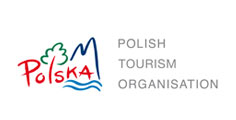Summary of the Project “Cooperation–Innovation–Sustainable Tourism” – Results, Reports, and Future Challenges
The Polish tourism industry faces challenges related to adapting to changing market conditions, tourists' expectations, and global trends in environmental protection and sustainable development. A response to these challenges was the two-year project “Cooperation–Innovation–Sustainable Tourism,” implemented in 2023–2024 by the Polish Tourism Organisation in cooperation with Regional Tourism Organisations.
_Rowery_Slowinski_Park_Narodowy.jpg)
The aim of the project was to strengthen awareness and competencies within the tourism industry and local government units regarding the implementation of sustainable tourism principles as well as to integrate various entities operating in this field. Thanks to extensive cooperation and the exchange of experiences, practical recommendations for regions and tools facilitating the shift toward more responsible tourism were developed.
Conferences and Activities within the Project
A key element of the project was the organisation of 16 regional conferences, which served as a platform for exchanging knowledge, experiences and discussions about current challenges and best practices in sustainable tourism.
These events were preceded by online surveys on the existing status of sustainable development in various regions of Poland. The topics included a comprehensive analysis of the current situation concerning the ecological awareness of tourism entrepreneurs, managers of attractions and tourism products involving local governments and the implementation of regulations regarding the protection of natural heritage and culture in the regions.
During the conferences, the following took place:
- Trainings and workshops for tourism professionals, local governments and NGOs aimed at improving competencies in ecological and responsible forms of tourism,
- Debates and panel discussions covering topics such as tourism flow management, environmental protection, the role of new technologies in regional promotion, expanding tourism offerings aligned with sustainable development goals as well as local and national-level cooperation,
- Presentations of good practices from Poland and abroad showcasing effective tourism management models in line with the principles of sustainable development.
The conferences also provided opportunities to establish partnerships and create cooperation networks between entrepreneurs, tourism organisations, local governments and academic institutions. A total of nearly 1,800 people participated in the 16 meetings.
Final Project Deliverables – Reports
One of the most important outcomes of the project was the development of 16 reports, each offering a comprehensive analysis of the implementation of sustainable tourism principles in the respective regions. Each report includes:
- A diagnosis of the current state of sustainable tourism management, including environmental, social and economic aspects.
- An analysis of actions undertaken by local governments and tourism businesses, including implemented regulations, strategies and eco-friendly initiatives.
- A review of good practices and innovative solutions introduced in the regions that can serve as models for other destinations.
- Recommendations for future action – guidelines for the industry, local governments and policymakers at national and local levels to support the effective implementation of sustainable tourism principles.
These reports are intended to support decision-making and strategic planning at the local level by providing concrete data and guidelines for the further development of tourism in a responsible, effective and globally aligned manner.
“Activities rooted in sustainable development bring not only economic and social benefits to Poland and its citizens but also align with the latest trends in the global tourism market. Implementing such solutions requires collaboration on many levels, continuous progress monitoring, and adaptation to changing circumstances. That is why the Polish Tourism Organisation is both a participant and an initiator of projects in this field, striving to promote local communities and integrated economic development while respecting the natural environment”, said Rafał Szmytke, President of the Polish Tourism Organisation.

The Role and Importance of Sustainable Tourism
Sustainable tourism is an approach that considers environmental, social, and economic aspects to minimise the negative impact on the surroundings and local communities. This concept aligns with global guidelines, including the UN’s 2030 Agenda and European strategies such as the European Green Deal.
Poland, ranked 12th in implementing the Sustainable Development Goals, aims to strengthen its position as an attractive and responsible tourism destination. The key areas of action within the project included:
- Protecting natural resources and biodiversity, including promoting ecotourism and reducing the carbon footprint of tourism,
- Developing innovative methods for promoting regions, including the use of AI and modern digital technologies,
- Managing tourism flows in a way that balances economic benefits with environmental protection and local community well-being,
- Educating the tourism sector, adapting services for people with special needs and promoting principles of responsible consumption.

Future Recommendations
Based on the collected data and experiences gained during the project, several recommendations were developed for the continued growth of sustainable tourism in Poland. The most important include:
- Increasing investment in education and ecological awareness among tourists and industry professionals,
- Promoting innovative solutions in low-emission transport, circular economy and energy efficiency in the HoReCa sector,
- Strengthening cooperation at the regional and national levels to align tourism strategies with climate and development policies,
- Facilitating access to funding for entrepreneurs and tourism organisations to support the implementation of eco-friendly initiatives.
The “Cooperation–Innovation–Sustainable Tourism” project was a significant step toward transforming Poland’s tourism sector. The developed regional reports are important analytical and strategic tools that will enable the continued pursuit of sustainable tourism at the local level.
Sustainable tourism is not a passing trend – it is a necessity resulting from global challenges and growing tourist expectations. Continuing the initiatives launched by the project will be crucial for the future of Poland’s tourism industry and its competitiveness on the international stage.
Today, it is not only strategies or national and EU regulations that require regions and tourism service providers to adopt sustainable practices – tourists themselves increasingly expect it.



